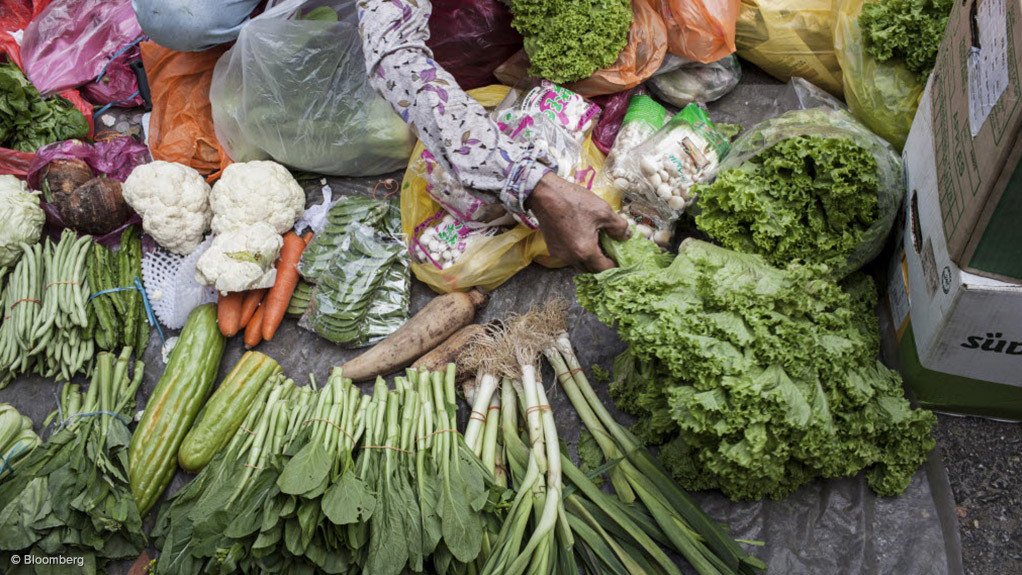Commission tasks munis, agents and retailers to fix distortion in fresh produce market
After launching a market inquiry into the fresh produce industry in March 2023, the Competition Commission has released its final report on the matter confirming that there are significant barriers to competition and entry in fresh produce markets.
Some of the barriers to competition include inefficiencies in municipal fresh produce markets, the conduct of market agents, high input costs including fertiliser and seeds, regulatory hurdles and systemic challenges for small-scale and emerging farmers.
The commission also confirms that fresh produce farmers often have limited access to formal retail channels and national markets, which further emphasises the need for transformation in the sector.
Moreover, the Fresh Produce Market Inquiry (FPMI) team proved that retailers such as supermarkets often have high mark-ups of total revenue over what suppliers are paid, for some of the products analysed in the FPMI.
However, the net margins remain slim, which indicates concerns in the value chain where high rents may be extracted at the supermarket level of the value chain.
The implication is that under the current models of modern food retailing, supermarket chains are not efficiently transmitting prices obtained from farmers to consumers for various produce categories, suggesting that competition in the formal retailing of fresh produce is not as healthy as it could be.
The final FPMI report follows a process of rigorous analysis and extensive stakeholder engagement to ascertain competition and practices within South Africa’s fresh produce market.
The inquiry’s main objective was to identify features within the value chains of apples, citrus, bananas, pears, table grapes, potatoes, onions, carrots, cabbage, tomatoes and spinach that may impede, restrict or distort competition.
Despite the fresh produce market’s yearly value exceeding R53-billion in the formal market, the participation of historically disadvantaged farmers remains minimal, which exacerbates historical inequalities, the commission states.
RECOMMENDATIONS
The FPMI team has proposed 31 practical recommendations aimed at promoting competition, reducing barriers to entry and promoting a more inclusive fresh produce value chain.
Some of the suggestions include policy reforms, market restructuring and targeted support for small-scale and historically disadvantaged farmers.
The remedial actions have been suggested to various stakeholders from municipal-owned national fresh produce markets in Buffalo City, Cape Town, Johannesburg, Tshwane, Emalahleni, eThekwini and Nelson Mandela Bay; market agents; supermarket retailers; shopping centre property owners; agricultural seed suppliers; regulatory authorities; development finance institutions; and some national government departments.
Retailers, for example, will now be required to display pricing of fresh produce on a ‘per 100 gram’ basis for all packed fresh produce products of the FPMI, within 12 months, in addition to any other pricing display chosen by the retailer.
Market agents, as key roleplayers in the fresh produce market chain connecting farmers and buyers at fresh produce markets, have been asked, together with the Agricultural Produce Agents Council (Apac), to operate more transparently and start implementing a regulated maximum commission fee.
The FPMI also suggests that Apac use its powers to promote transparency in produce distribution practices through incentivising partnerships, supporting infrastructure development and collaborating with farmers.
It adds that Apac and management members of fresh produce markets should educate farmers on negotiating lower commissions with market agents.
The commission further requires that large market agents such as Subtropico and RSA Group enter into two-year management agreements with smaller market agents for skills transfer purposes, as well as training on managing the fresh produce market agency business.
STATE ACTION
In launching the final report of the FPMI on January 13, FPMI chairperson and Competition Commission deputy commissioner Hardin Ratshisusu said three issues impact national fresh produce markets in particular: inefficiencies as a result of inadequate funding, lack of participation by smaller companies and emerging farmers, and inconsistency of several key bylaws.
Municipalities, together with the South African Local Government Association and the South African Union of Food Markets, have been mandated to change the operating and governance models for the national fresh produce markets which they own or operate, including through public-private partnerships and corporatisation of operations.
The commission suggests municipalities must ringfence profits earned from fresh produce for capital expenditure at markets and increase allocations for these markets from municipal budgets.
Municipalities are also expected to, within three years, harmonise the bylaws with respect to trading hours, rules for market agents and the use of cold storage and ripening facilities across the markets.
The commission has also imposed various responsibilities on the Department of Agriculture to ensure open access to markets and support of small-scale and emerging farmers.
Article Enquiry
Email Article
Save Article
Feedback
To advertise email advertising@creamermedia.co.za or click here
Press Office
Announcements
What's On
Subscribe to improve your user experience...
Option 1 (equivalent of R125 a month):
Receive a weekly copy of Creamer Media's Engineering News & Mining Weekly magazine
(print copy for those in South Africa and e-magazine for those outside of South Africa)
Receive daily email newsletters
Access to full search results
Access archive of magazine back copies
Access to Projects in Progress
Access to ONE Research Report of your choice in PDF format
Option 2 (equivalent of R375 a month):
All benefits from Option 1
PLUS
Access to Creamer Media's Research Channel Africa for ALL Research Reports, in PDF format, on various industrial and mining sectors
including Electricity; Water; Energy Transition; Hydrogen; Roads, Rail and Ports; Coal; Gold; Platinum; Battery Metals; etc.
Already a subscriber?
Forgotten your password?
Receive weekly copy of Creamer Media's Engineering News & Mining Weekly magazine (print copy for those in South Africa and e-magazine for those outside of South Africa)
➕
Recieve daily email newsletters
➕
Access to full search results
➕
Access archive of magazine back copies
➕
Access to Projects in Progress
➕
Access to ONE Research Report of your choice in PDF format
RESEARCH CHANNEL AFRICA
R4500 (equivalent of R375 a month)
SUBSCRIBEAll benefits from Option 1
➕
Access to Creamer Media's Research Channel Africa for ALL Research Reports on various industrial and mining sectors, in PDF format, including on:
Electricity
➕
Water
➕
Energy Transition
➕
Hydrogen
➕
Roads, Rail and Ports
➕
Coal
➕
Gold
➕
Platinum
➕
Battery Metals
➕
etc.
Receive all benefits from Option 1 or Option 2 delivered to numerous people at your company
➕
Multiple User names and Passwords for simultaneous log-ins
➕
Intranet integration access to all in your organisation



















